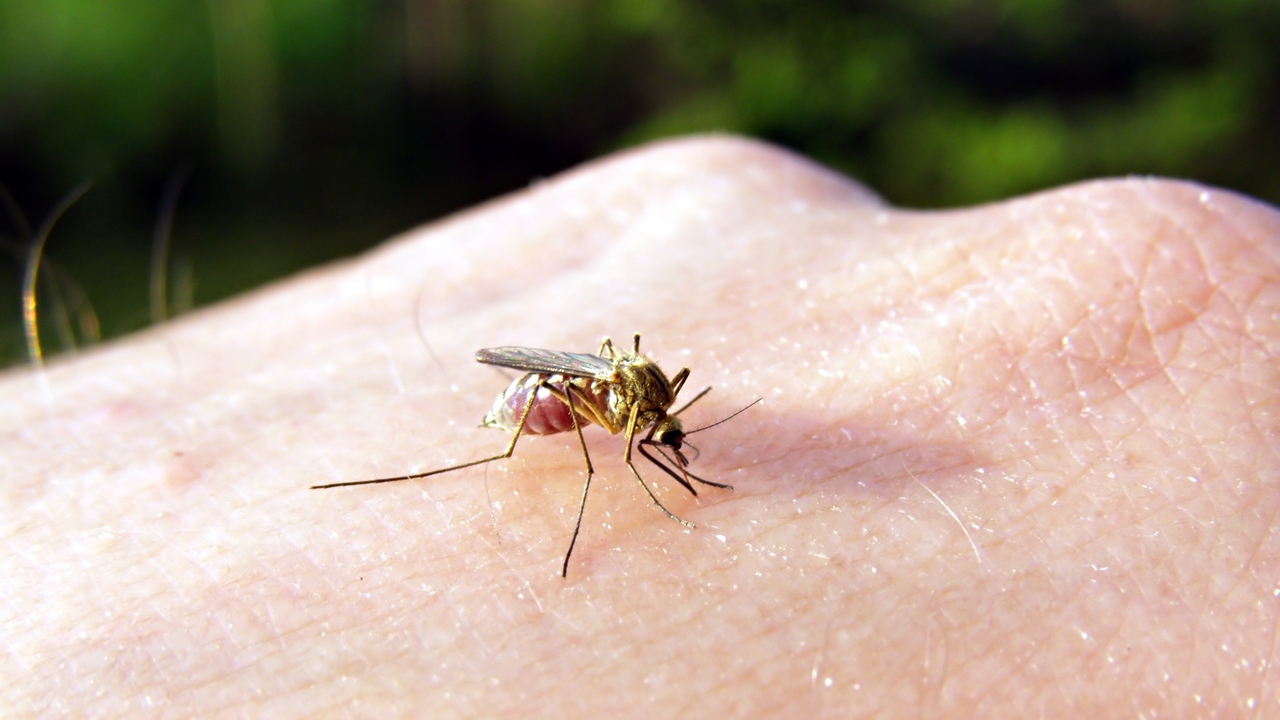 Sergey YAkovlev/PhotoSpin
Sergey YAkovlev/PhotoSpin
When mosquitoes are buzzing, are you the most likely person in your family to get bitten? Research has shown that there is truth to the idea that some people attract mosquitoes more than others.
Mosquito bites occur, not because the mosquito is hungry, but because female mosquitoes need the protein found in blood to develop eggs that are fertile. Male mosquitoes don’t need this protein, so they don’t bite.
Scientists have uncovered a number of factors that may attract mosquitoes to some people more than others:
Blood type
If your blood type is O, you are more likely to get bitten than if you have any other blood type. A controlled study of a small number of test subjects showed type O was nearly twice as popular as type A, which ranked second.
In addition, about 85 percent of people secrete a chemical on their skin that signals what blood type they have. Overall, mosquitoes prefer people who have this chemical scent over those who do not.
Bacteria
Mosquitoes are attracted to certain types of bacteria that live on our skin. This may explain why feet and ankles are common targets for mosquito bites since there are usually more bacteria on those parts of the body.
Carbon Dioxide
Mosquitoes can detect carbon dioxide from as far away as 164 feet. In effect, they sniff out probable blood donors by choosing people who produce more carbon dioxide.
In general, larger people exhale more carbon dioxide, making them more likely to get bitten. Heavy breathing caused by exercise can make you more attractive to mosquitoes, as well. This is also a reason why small children are generally less likely to be bitten.
Pregnancy
As a rule, pregnant women are about twice as likely to get bitten by mosquitoes as other people. This is partly because women breathe out approximately 21 percent more carbon dioxide when they are pregnant. On average, pregnant women are also 1.26 degrees Fahrenheit warmer than usual, which may also attract mosquitoes.
Sweat
Mosquitoes can also track the smell of lactic acid, uric acid, ammonia and other substances found in sweat. The amount of those acids you have in your sweat is controlled by your genes. So working up a sweat outdoors may make you a more likely target for mosquitoes.
Genetics
Researchers at the London School of Hygiene & Tropical Medicine worked with teams at the Universities of Nottingham and Florida. They've uncovered new evidence to support the idea that genetics plays an important role in determining who mosquitoes are mostly likely to target.
The study tracked 18 identical and 19 non-identical female twins. Twins who are identical have the exact same genetic makeup while non-identical twins are different genetically.
Dr. James Logan, senior lecturer in medical entomology at LSHTM, was a researcher for the study. Logan said, “If attractiveness [to mosquitoes] is down to our genes, we would expect to see a high correlation between the identical twin pairs and a lower correlation between the non-identical twin pairs. And this is exactly what we found.”
While some genetic factors, like the composition of your sweat, may make you more of a mosquito magnet, other lucky people have the opposite experience. Scientists at the Rothamsted Research lab in the UK have discovered that some people secrete chemicals on their skin that act as a natural repellent, keeping mosquitoes away.
The researchers at LSHTM hope their work will help point the way toward new insect repellents, including ways to help more people produce natural repellents that come from the skin to reduce the need to wear chemical repellents on the skin.
Mosquito bites can be more than an itchy annoyance. Mosquitoes are known to be potential carriers for a variety of diseases that can affect people and animals including Chikungunya virus, malaria and West Nile virus which can be deadly.
Although you cannot control all of the genetic and other factors that may make you more of a mosquito magnet, there are things you can do to protect yourself from mosquito bites and potential mosquito-borne diseases.
Use repellent
Choose an EPA- registered repellent that contains one of these active ingredients: DEET, picaridin, IR3535 or plant-based oil of lemon eucalyptus. Permethrin is another repellent that can be sprayed on clothing but should not be sprayed directly on skin.
Dress for success
Wear long-sleeve shirts, long pants and socks to keep mosquitoes from reaching your skin. Also avoid dark colors like black, navy blue and red that may attract mosquitoes visually.
Pick your time outdoors
Mosquitoes are most likely to be active between dusk and dawn. If you plan to be outside during that time, be sure to wear repellent to keep mosquitoes away.
Be aware
Mosquitoes lay their eggs in still water. So check your yard and eliminate likely places for them to deposit larva, such as bird baths, buckets of water or puddles from excessive plant watering.
If you see standing water in other areas around your neighborhood, check with your city to see what programs they have in place to eliminate breeding grounds and reduce the mosquito population.
If you have questions about mosquito bites or diseases transmitted by mosquitoes, talk to your health care provider.
Sources:
Smithsonian. Why Do Mosquitoes Bite Some People More Than others? Joseph Stromberg. Web. June 10, 2015.
http://www.smithsonianmag.com/science-nature/why-do-mosquitoes-bite-some...
Web MD. Are You a Mosquito Magnet? Elizabeth Heubeck. Web. June 10, 2015.
http://www.webmd.com/allergies/features/are-you-mosquito-magnet
Newsweek. Mosquitoes Really Do Prefer Some People to Others, Say Scientists. Christian Jennings. Web. June 10, 2015.
http://www.newsweek.com/2015/05/01/mosquitoes-really-do-prefer-some-peop...
The American Mosquito Control Association. Mosquito-Borne Diseases. Web. June 10, 2015.
http://www.mosquito.org/mosquito-borne-diseases
Centers for Disease Control and Prevention. Prevent Mosquito Bites. Web. June 10, 2015.
http://www.cdc.gov/features/StopMosquitoes
Reviewed June 11, 2015
by Michele Blacksberg RN
Edited by Jody Smith





Add a CommentComments
There are no comments yet. Be the first one and get the conversation started!